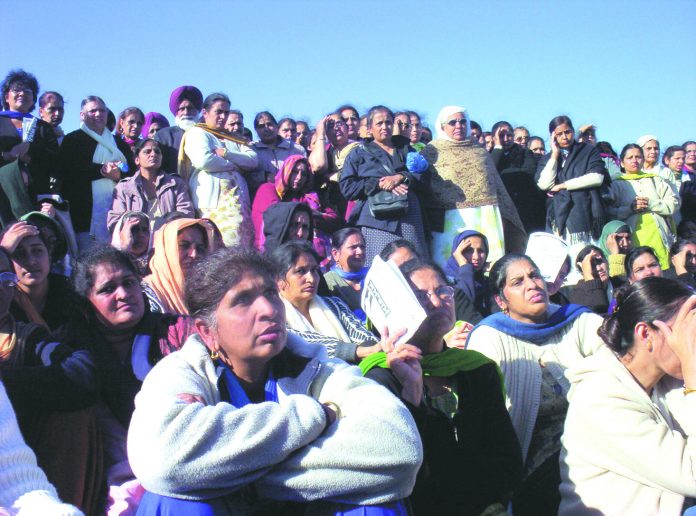
THE policy of the Labour government, as far as the NHS is concerned, is to hand over more and more of the NHS budget to the private sector, while bankrupting more and more NHS trusts, forcing them into closure.
While billions have been handed over to the private medical industry, so that it can make vast profits out of doing NHS work, the NHS itself is being starved of cash and decimated.
Health Secretary Patricia Hewitt issues stern warnings to the NHS trusts that they will not be ‘bailed out’ by the government if they go bust.
Instead they are to be shut down, or handed over to the privateers to run or own.
Yesterday, the Pontius Pilates of the Department of Health washed their hands of the NHS, saying that the closure of A&E departments was a matter to be decided on at local level.
The government’s policy could be summed up as sabotaging the NHS for the benefit of the health privateers.
The cash crisis caused by Labour’s support for privatisation has already seen three Accident and Emergency Departments closed since June with as many as 30 more to close in the period ahead.
Cash shortages have led some trusts to open minor injury units in smaller hospitals, sending serious cases to A&Es in larger hospitals.
Southmead Hospital, Bristol, closed its A&E in June, becoming a minor injuries unit.
At Ormskirk Hospital, in Lancashire, the A&E is only treating children, and adults with minor problems. The unit had previously stopped doing night-time surgery.
Kent and Canterbury Hospital was voted one of the best casualty departments in the country a few years ago. The unit was downgraded in January when it stopped taking trauma patients.
Princess Royal Hospital, West Sussex, no longer treats serious injuries at the hospital A&E unit since June, a move which is expected to affect 3,000 patients a year.
At Crawley Hospital, Sussex, the A&E unit was closed in August 2004. Within a month backlogs at the nearby East Surrey casualty department were being blamed on the change.
This is just a start. The government is now preparing to bring in Emergency Care Practitioners (ECPs) to take the place of the current ambulance service, in order to close many more A&E departments.
Health Secretary Hewitt reckons that up to one million patients attend A&Es unnecessarily. She intends to eliminate these one million ‘fake’ patients. They are to be treated in their homes.
In future, only serious cases will be taken to the A&E by ambulance. They will be selected by an Emergency Care Practitioner (ECP) at the end of a call line. All others will be seen by ECPs on bicycles, in cars or on motorbikes, who will treat the patient in their home. Hewitt says: ‘The ambulance service can take on a new role by taking the hospital to you’. She doesn’t mention that ‘The hospital is to come to the patient’ on a bicycle, pedalled by a person with very limited medical knowledge.
So far there has been no answer to the question: ‘What will happen when there is a wrong phone diagnosis and an ECP is sent out on a bicycle to a seriously injured patient who desperately needs an ambulance and proper hospital treatment?’
This counts for nothing when measured against the goal of shutting down large numbers of A&Es, putting a large number of ambulances into mothballs and creating a large pool of skilled labour to be employed by the privateers.
Labour’s drive to destroy and privatise the NHS has to be stopped.
The first thing to do is for all of the hospitals that face cuts or closure to unite in the organisation of a Day of Action that will be for all hospital workers, trade unions and trade unionists. This will demand that the hospital deficits are wiped out instead of the hospitals, that central NHS control is restored and the privateers are sacked.
Such a Day of Action must be used as the basis for organising a general strike to defend the NHS by bringing the Blair government down and a Workers Government in, that will restore the NHS, and finance it by nationalising the drug companies.
